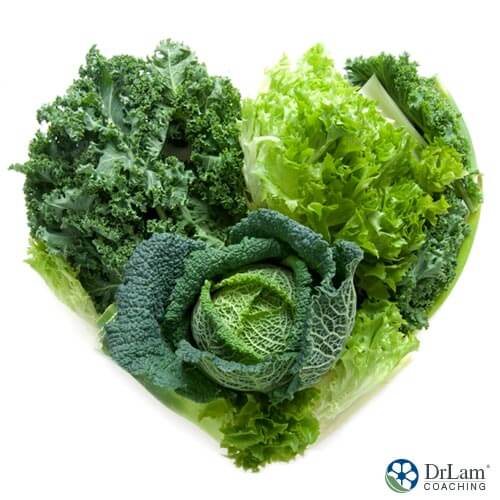 Hypertension, or high blood pressure, is an increasing health issue worldwide. According to recent estimates, over 75 million Americans are affected. Hypertension has been linked with stroke and heart attack. There are numerous factors influencing your blood pressure levels, but your dietary habits play a crucial role. In the hopes of understanding this, how dietary interventions affect hypertension, recent clinical trials have been conducted to explore the effects of nitrate rich vegetables on blood pressure levels.
Hypertension, or high blood pressure, is an increasing health issue worldwide. According to recent estimates, over 75 million Americans are affected. Hypertension has been linked with stroke and heart attack. There are numerous factors influencing your blood pressure levels, but your dietary habits play a crucial role. In the hopes of understanding this, how dietary interventions affect hypertension, recent clinical trials have been conducted to explore the effects of nitrate rich vegetables on blood pressure levels.
Blood flows through your arteries away from the heart with a certain amount of pressure which is referred to as blood pressure. It is a combination of your systolic and diastolic pressure. Systolic pressure indicates the blood pressure when your heart is beating, whereas diastolic pressure indicates the blood pressure when your heart is filling. When pressure on the blood vessels and arteries increases, the arterial walls get distorted. This exerts additional stress on your heart, thus leading to high blood pressure.
There can be changes in your blood pressure during stress or exercise, and blood pressure fluctuates throughout the day. However, hypertension occurs when you have chronically high blood pressure, raising your risk of developing multiple dangerous health conditions.
As there are no major visible symptoms of high blood pressure, the condition is often referred to as a “silent killer.” However, some of the warning signs of very high blood pressure include headaches, chest pain, irregular heartbeat, nosebleeds, ear buzzing, vision changes, and tiredness.
However, most people do not even realize that they have hypertension until a serious problem arises.
There can be numerous causes for hypertension making it complex. Some of the factors contributing to hypertension include:
Prolonged hypertension raises the risk of diabetes, stroke and heart attack. It can also lead to vision loss, reduced kidney function, blocked blood vessels, arterial damage, heart failure, poor cognitive function, and metabolic syndrome.
In most cases, you do not even know that you have hypertension until you have been actually diagnosed by a healthcare professional. Therefore, checking your blood pressure levels regularly is important.
Nitrate is basically a salt of nitric acid composed of one nitrogen atom bound to three oxygen atoms. When most people hear “nitrate,” the first thing they think of is processed meat. This is because artificial nitrate is added to processed meat such as bacon, hot dogs, and salami for preservation. However, there is an abundance of nitrate that can be naturally found in vegetables, fruits, and grains.
 When taken from animal sources, nitrate is converted into carcinogenic nitrosamine in your body, which is extremely harmful to your health. However, plant-based nitrate is prevented from being converted into carcinogenic nitrosamines by the presence of vitamin C. When you consume nitrate-rich vegetables, oral bacteria converts nitrate to nitrite. Nitrite further reacts with stomach acids that convert it into nitric oxide in your body, which has remarkable health benefits.
When taken from animal sources, nitrate is converted into carcinogenic nitrosamine in your body, which is extremely harmful to your health. However, plant-based nitrate is prevented from being converted into carcinogenic nitrosamines by the presence of vitamin C. When you consume nitrate-rich vegetables, oral bacteria converts nitrate to nitrite. Nitrite further reacts with stomach acids that convert it into nitric oxide in your body, which has remarkable health benefits.
Being a vasodilator, nitric oxide dilates your blood vessels and relaxes the arteries, facilitating the improved blood flow throughout your body that is essential for maintaining healthy blood pressure.
Here are some of the health benefits of nitric oxide:
Research suggests that consuming certain types of foods such as nitrate-rich vegetables can help lower blood pressure levels. The nitrates present in some vegetables can promote healthy blood vessels, which is essential for maintaining healthy blood pressure. However, there is not sufficient evidence at this point to say whether nitrate-rich vegetables are really the best way to reduce hypertension. Some studies suggest they are more effective in healthy people who do not have hypertension. So more research is needed.
Increased stress is a significant contributing factor to hypertension. Your body is equipped with a natural stress-fighting mechanism known as the NeuroEndoMetabolic (NEM) Stress Response System. It is a complex network of six circuits, including the cardionomic circuit, which functions together to help fight stress. A pair of walnut-shaped adrenal glands located above your kidneys is also an important part of the response system.
During stressful situations, the NEM signals your adrenal glands to secrete the anti-stress hormone cortisol to deal with stress. However, when stress persists, more pressure is exerted on the adrenals for secretion of additional cortisol to deal with the increased stress levels. With time, this can overburden your adrenals until they are no longer in a position to secrete adequate cortisol. This reduces your body’s natural stress-fighting ability and can lead to adrenal fatigue.
When you frequently experience extreme fatigue along with symptoms such as insomnia, low energy levels, difficulty in waking up, low concentration levels, brain fog, constipation, anxiety, stubborn weight gain, or craving for salty and fatty foods, then you could have Adrenal Fatigue Syndrome (AFS).
The cardionomic circuit of your NEM is comprised of your blood vessels, lungs, and heart. Imbalances here can cause high blood pressure, cardiac arrhythmias, heart palpitations, shortness of breath, and dizziness.
Constant exposure to stress causes elevated cortisol levels which keep your body in a constant state of fight or flight. This has a negative effect on your cardionomic response which, in turn, raises the risk of developing various health issues including hypertension. Therefore, managing your stress levels is critical to maintaining healthy blood pressure levels.
The causes of hypertension can be complex, but the good news is that many of them are in your control. For example, not getting enough exercise and eating a diet high in sodium raises your chances of developing hypertension. The condition is also closely related to stress, obesity, smoking, and other chronic illnesses such as chronic kidney disease.
The good news is that, in many cases, hypertension can be reversed by adopting a healthy lifestyle and incorporating foods that reduce blood pressure. Yet many people with hypertension depend on medications which have several side effects including unusual fatigue, dizziness, blurred vision, and confusion.
Therefore, it can be wise to make healthy lifestyle changes and give the foods that lower blood pressure a try before taking medication. If you are at risk of hypertension or already experiencing high levels, then resorting to natural ways to reduce blood pressure is a great way to start dealing with the condition. Keeping your blood pressure levels normal supports the healthy function of the cardionomic circuit, thus reducing the risk of heart attack.
The following are excellent natural strategies to help reduce high blood pressure.
If you are seeking to maintain healthy blood pressure levels through your diet, the evidence is on your side. Some studies have linked ingestion of nitrate-rich vegetables with reduced blood pressure.
Vegetables, fruits, and grains are naturally high in nitrates and can provide profound health benefits including relaxing of your blood vessels and improving your blood flow.
 Some of the nitrate-rich vegetables include:
Some of the nitrate-rich vegetables include:
Including plant-based nitrate sources in your diet raises the level of nitric oxide in the body. Nitric oxide helps dilate the blood vessels for enhanced blood flow throughout the body including the lungs and heart of the cardionomic circuit. This helps maintain healthy blood pressure levels.
These foods and supplements are also known to help lower blood pressure:
In addition to eating a healthy diet that helps reduce inflammation and lower blood pressure, getting enough exercise is also an important part of keeping your blood pressure at healthy levels. Regular workouts help strengthen your body, improve blood flow, and reduce insulin resistance. Practicing adrenal breathing exercises is also a gentle way to soothe stress and reduce blood pressure levels.
 Hypertension or high blood pressure is a prevalent health issue worldwide. People with hypertension have an elevated risk of developing stroke, heart disease, diabetes, reduced kidney function, and other conditions. Finding the actual cause of hypertension can be hard. Stress, lifestyle, and diet play a major role for most people. And long-term use of hypertension medications can have severe side effects.
Hypertension or high blood pressure is a prevalent health issue worldwide. People with hypertension have an elevated risk of developing stroke, heart disease, diabetes, reduced kidney function, and other conditions. Finding the actual cause of hypertension can be hard. Stress, lifestyle, and diet play a major role for most people. And long-term use of hypertension medications can have severe side effects.
However, high blood pressure can often be reversed naturally. Nitrate-rich vegetables may help reduce blood pressure levels, although more studies are needed to be sure. Some of the nitrate-rich vegetables include leafy greens, beet, cabbage, carrot, and green beans. Eating foods that help lower blood pressure, taking nutritional supplements, and getting regular exercise can help reduce elevated blood pressure and can be an effective way of dealing with hypertension.
Industrial fertilizers contain artificial nitrates which leave residue on vegetables. These are not good for you, so make sure to wash your vegetables thoroughly to get rid of any artificial nitrates. Consider going for organic nitrate rich vegetables as they are free from pesticides and artificial fertilizers.
